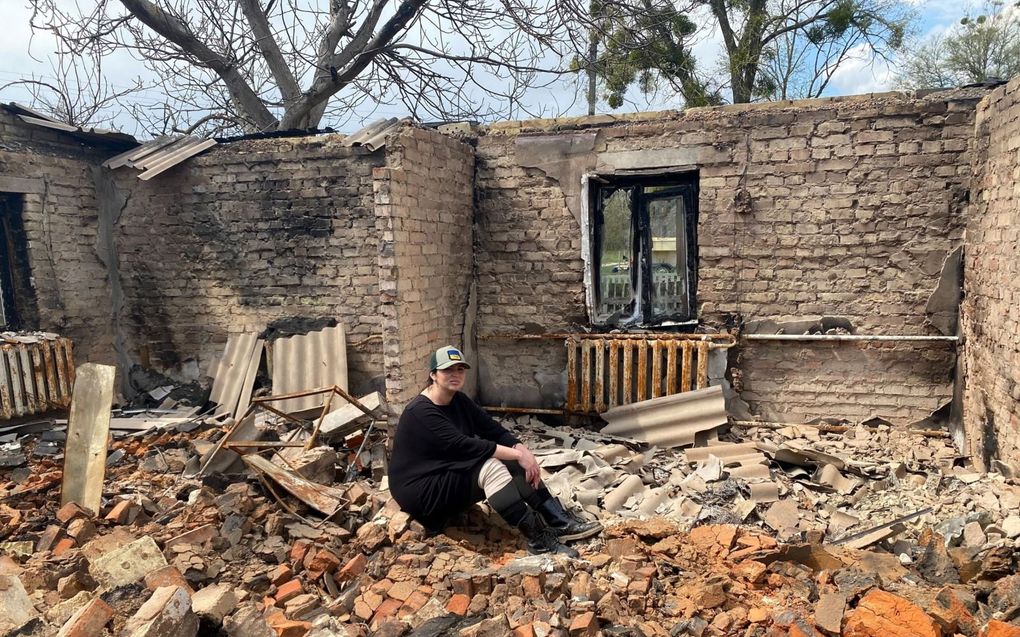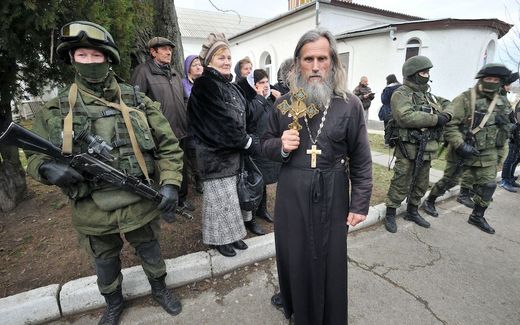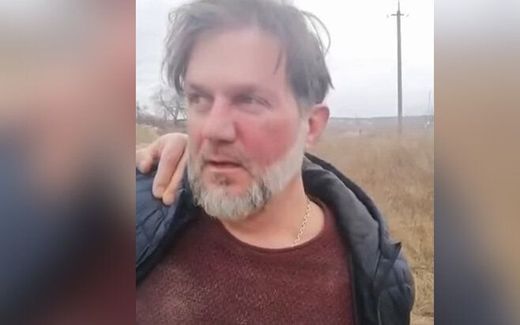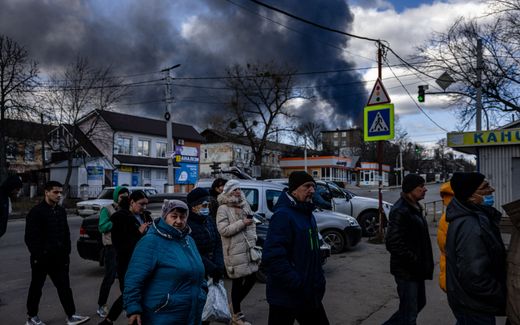The widow’s jar in Lutsk
11-05-2022
Eastern Europe
Jan van Reenen, RD

Katherine Semenyuk. Photo Arjan Kats
Eastern Europe
Ukrainian Katherine Semenyuk has no peace of mind. “I only sleep three hours a night.” The images of the war are spinning through her head– for example, of Oxanna, who managed to escape from the city of Mariupol and recently came to faith.
Katherine Semenyuk is the wife of Pastor Serhiy Semenyuk of the Assembly of God, a Pentecostal church in Lutsk, North-western Ukraine. She has een staying in the Netherlands for a few days, together with her children and second pastor, Igor Nazarchuk. This week, she is going back to help her congregation.
A cup with three charred spoons and two similar forks is on the table during the conversation. Semenyuk recently received them from a woman from the village of Andriivka, near Kyiv. “She stood by the ruins of her house. The woman said that the Russians had completely destroyed the building with a T-72 tank when they left. I offered her to come with me to Lutsk, but she refused. She continued to live in her shed, the only shelter still standing. I was allowed to show these charred spoons and forks in the Netherlands. I definitely want to revisit her.”
Relief supplies
At the beginning of the year, Lutsk still had about 280,000 inhabitants. Now, that number is estimated to be 500,000; no one knows exactly how many refugees there are. Many inhabitants have evicted people in their homes. Nazarchuk took in seventeen of them. All over his house, people are sleeping, even in the hallways.

The church in Lutsk contributes as well. The ecclesiastical community was already accustomed to committing itself to the community, for example, by helping young people. Refugees now accompany them. Relief supplies such as food and medicine are stored in the church building.
Every day – exactly at 3 p.m. – a meal is served to refugees at long tables in the church building. “The number of participants varies from twenty to eighty,” says Semenyuk. “We are counting on the maximum. Leftovers go to other refugees in the city.”
She marvels at the fact that there is enough food every day. “It is like the jar of the widow of Zarephath, which did not become empty. Elijah had promised that God would sustain her. That’s how it is with us. The more refugees there are, the greater the supply. God rules.”
Besieged city
The approximately one hundred volunteers also care for children, some of whom are traumatized. Semenyuk: “On April 12, three women and a six-year-old child came in here wanting something to eat. When I wrote down their details, they turned out to be from Mariupol. With great difficulty, they had managed to escape from the besieged city. They had driven three days to get here. That boy is so traumatized he can’t speak. He only responds to games.”
Oxanna, the child’s mother, cried a lot, Semenyuk says. “She came to faith and now attends services on Sundays.” She shows a message from her, which reads – translated – “Thank you. It was the first time I felt peace again.”
Another woman who knocked on the door of the church is a relative of one of the people from Bucha who had been killed by the Russians. “She saw everything happen there. We caught her. She, too, now attends Sunday services. Most importantly, the refugees come to know Christ. We often talk about that.”
The municipality sends cars full of supplies to the Donbas, the region where there is fighting. So far, at least 80 shipments have left for the war zone. “The volunteers are not armed, but they do put on bulletproof vests and take three spare tires with them because there’s all kinds of junk on the road up there in the east.”
Surrounded
Semenyuk tells of a trip to Tsernihiv when the Russians surrounded the city. “The helper had to cross a river. Because the Russians had destroyed the bridges, the volunteer had to transfer the supplies by boat. When shots were fired during the crossing, he had to lie flat on the supplies. He has come back.” The photo of the boat with supplies shows a pack of Nutrilon from the Netherlands.
The church also supplies the Ukrainian army. Semenyuk gets fierce when asked whether that’s necessary. “We don’t bring weapons, but the soldiers have to eat too, don’t they? The Russians have come to destroy us. May we not help our men?”
Related Articles





